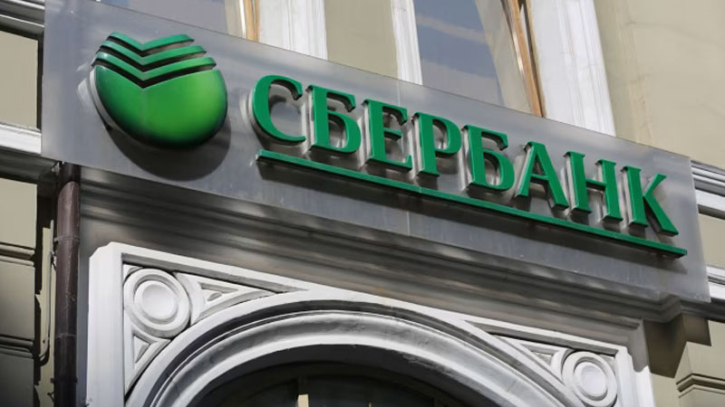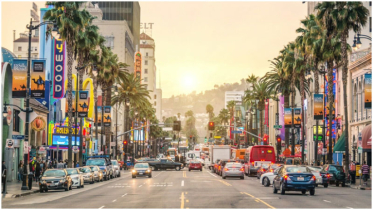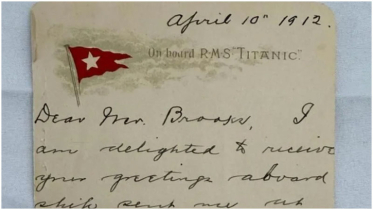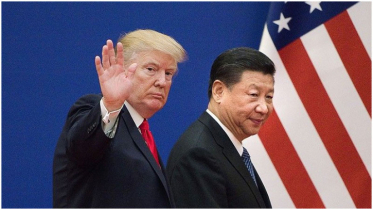Russian state banks open branches in eastern Ukraine

Russia is consolidating its hold on newly occupied areas of Ukraine by opening branches of its largest state banks in cities such as Mariupol.
The Kremlin has encouraged companies to enter Ukrainian regions seized by force during the start of its full-scale invasion in 2022. While many brands still avoid those areas for fear of western sanctions and the risks of running a business in a war zone, Russia’s two largest state lenders, Sberbank and VTB, have begun to heed the call.
Sberbank, which was placed under western sanctions in 2022, told the Financial Times it opened 130 cash machines and 48 locations in what Moscow describes as its “new regions” in eastern and southern Ukraine, including full-format branches.
“Sberbank has already served nearly 70,000 people and plans to expand its business there,” it said.
President Vladimir Putin told state companies this year there was “nothing to fear” by setting up shop in occupied regions.
“You need to start going into these territories more enthusiastically and start working there,” Putin told Russian financial sector leaders. “Everything that you feared — sanctions — has already happened. So what’s there to be afraid of?”
Moscow has claimed the Donetsk, Luhansk, Kherson and Zaporizhzhia regions of Ukraine to be constitutionally part of Russia after occupying them by force. It does not fully control all the land it has claimed and continues trying to seize more of the regions, which are internationally recognised as Ukraine, by force.
In the meantime, Ukraine launched a surprise lightning offensive into Russia’s Kursk region last month, seizing swaths of land as both sides seek to maximise their territorial gains ahead of any peace talks.
Politicians, human rights activists and Ukrainians forced to flee the areas occupied by Russia have spoken up about abuses, including torture and arbitrary detention, that take place with virtually no scrutiny in the “new regions”.
They also point to the many ways Moscow has sought to “Russify” the areas, including changing textbooks, removing Ukrainian monuments and bringing in high street banks.
Sberbank’s new branches include half a dozen “mobile offices” in Mariupol, a city Russian forces razed to the ground in the first months of the invasion, killing tens of thousands of people.
VTB, which has also been placed under sanctions since 2022, has announced it would start servicing clients at bricks-and-mortar offices in Mariupol by the end of the year. Its chief, Andrei Kostin, was pictured cutting the ribbon on a first branch in the occupied Ukrainian city of Luhansk in July.
“This is not just a new office. This is another important stage of the region’s integration process into the country’s economy,” Kostin was cited as saying by the state Tass news agency.
Until recently, large Russian retailers, banks and other companies had been wary of working openly in areas such as the Crimean peninsula and the Donetsk and Luhansk regions of eastern Ukraine, which Russia has controlled since 2014.
But Sberbank has also returned to Crimea, opening its first office there last year after shutting its operations in 2014 when Moscow annexed the peninsula.
Previously, banking services were provided on the peninsula by lenders specifically deployed for tasks that could incur western sanctions, such as the defence industry-geared Promsvyazbank. PSB was also the first to enter newly occupied territories and now counts almost 400 offices in the Donetsk and Luhansk regions.
Other consumer businesses are beginning to pop up in the occupied territories, but most Russian retail chains and brands with name recognition are still wary of entering the market.
“Sensible businesses won’t go there — it’s just not worth it,” said a person in the Russian retail sector. “Purchasing power is low, with mostly pensioners and state workers remaining in those regions. The risks are high. Even in Crimea, which is a different situation altogether, very few companies have entered.”
Companies working openly in occupied areas risk incurring western sanctions.
After trade and industry minister Denis Manturov announced in March that Russian online marketplaces would start working in the areas, and the Russian-installed head of the Donetsk region Denis Pushilin named those marketplaces, Ozon and Wildberries, as top Russian Amazon equivalents, both companies swiftly issued denials, citing a lack of company logistics and transport facilities.
Residents of occupied areas have instead relied on an informal courier service, ordering goods to be sent to addresses in southern Russia, where local entrepreneurs then drive the parcels into occupied areas. The trade is co-ordinated over the Telegram social media app, and customers pay about a 15 per cent mark up for delivery.
But this summer, Promsvyazbank also launched its own marketplace, PSB Market, working only in occupied areas. It sells western items such as iPhones, Adidas sneakers and Oral-B electric toothbrushes, but the platform appears clunky and rushed, compared with the more user-friendly Ozon and Wildberries. Prices, too, appear noticeably higher, particularly on consumer tech.
Opening branches in the occupied territories functions as a way for Russian brands to display their patriotic credentials. Black Star Burger, a restaurant chain co-owned by pro-Kremlin rapper Timati, said in June it would open venues in Mariupol and in the Kherson region.
According to Russian tax service data, more than 2,500 companies were registered in the “new regions” in 2023. These are thought to comprise a mix of newly established businesses and re-registered or expropriated businesses.
Many Ukrainians who fled the occupation have since found their shops seized and transferred into other hands, to new local owners or Russian arrivals.
Since 2023, the most visible grocery provider in the occupied areas has been the First Republican Supermarket chain. It now runs more than 70 shops across the Donetsk region.
Before the Russian occupation, the chain belonged to Ukrainian retailer ATB-Market. Now, Russian corporate registry data lists the chain as owned by Natalia Zakharchenko, widow of Alexander Zakharchenko, the former Kremlin-chosen leader of the so-called Donetsk People’s Republic who was killed in an explosion in 2018.
Ukrainian investigators monitoring developments in the occupied territories say the retail sector, and business in the region in general, still looks a lot like the economic wild west of the 1990s in post-Soviet countries.
“It’s all very chaotic,” Oleg Baturin, an investigative journalist from the Kherson region told the Krym Realii media outlet. “The occupying force has brought everything back to the level of 35 years ago.”
.png)




